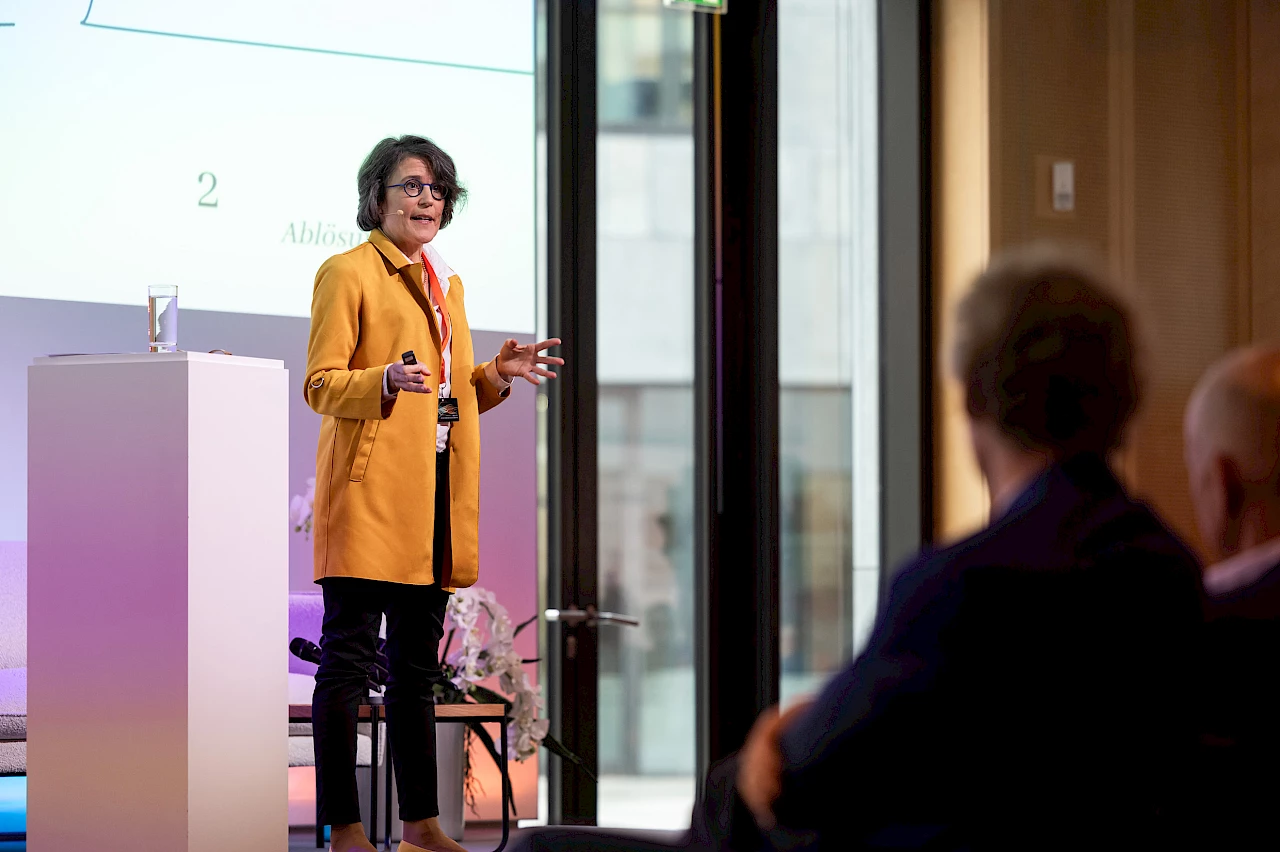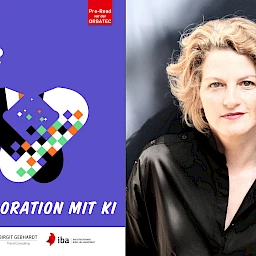Dr. Jo Aschenbrenner is a lawyer with a doctorate, coach, and author of For Purpose: A New Operating System for Companies. For many years, she has been exploring how organisations can embed purpose as a guiding principle. In an interview with the IBA Forum, she explains why purpose is much more than a communication tool and what structural conditions are necessary for it to be effective in practice.
In recent years, there has been much talk about the purpose of companies. What developments have you observed? Is it approached more strategically or emotionally today?
I think it’s important to always consider the term within the context of the organisational paradigm. Frederic Laloux described this very clearly in his model of different corporate logics: from the performance-oriented orange organisation, through the green, community-oriented, pluralistic one, to the teal, integral, purpose-driven organisation. Many large companies, i.e., the classic orange organisations, have used the term “purpose” primarily as a communication tool. This was often little more than purpose-washing. In the green logic, as often found in medium-sized companies, meaning plays a greater role, for instance as emotional commitment. However, the integral organisation that I describe in my book goes one step further: here, purpose is the central organising principle from which structures, decisions, and leadership are derived. As far as public reporting on purpose is concerned, things have largely normalised after the initial social media hype. Most companies have reverted to more traditional forms of leadership because they were unable to sustain openness and self-organisation. At the same time, however, a small but highly consistent group of companies is emerging that truly embed purpose strategically. Their motto is: profit follows purpose.
How can purpose be successfully embedded?
Genuine change begins with structures. In my work with encode.org, we asked ourselves questions such as: Who owns the company? Who holds decision-making power? Who benefits from the capital? Purpose can only become effective if ownership, voting rights, and capital flows are aligned with the company’s purpose. For example, we decided that there should no longer be traditional employees, only co-entrepreneurs. Other organisations, such as the Spanish company Krisos, also demonstrate what happens when you pursue this path consistently: 50% revenue growth, 0% staff turnover, 100% salary transparency, and a significantly higher proportion of women in management positions. These are not coincidences, but the results of consistent structural change. Purpose cannot simply be implemented; organisations must be designed so that they cannot help but act in a purpose-driven way.
There is often talk of a powershift, i.e., a new distribution of responsibility, power, and decision-making authority. What is required for this change to succeed?
Firstly, we need people who are willing to redefine power. A power shift means that sometimes I lead, and sometimes I am led — depending on the task. Leadership is no longer a position but a function. This requires that I do not derive my self-worth from a leadership role and that I can grow into leadership after having been led.
How does leadership change in a purpose-driven organisation, especially in a hybrid, digital working environment?
In integral organisations such as encode.org, leadership is completely detached from person-based hierarchies. There are no bosses, only role-based and task-related responsibilities. Everyone leads in the areas where they have professional expertise and have been assigned the respective task. However, this only works if there is clarity about responsibilities. Empathy and psychological safety are important, but they are not leadership tasks. Each person is responsible for finding stability within this structure and advancing the organisation’s goals. This may sound radical, but it is incredibly liberating because everyone knows exactly where they stand. Leadership here means taking personal responsibility, not exercising control.
How does this understanding fit in with the expectations of younger generations, who often seek meaning and self-efficacy?
I believe Generation Z is much more diverse than it is often portrayed. Many young people are not only looking for meaning but also for clear structures and security. They want to know what is expected of them and to develop within that framework. Organisations must provide this clarity while also allowing space for growth. This means communicating expectations clearly, demanding commitment, but also listening and nurturing talent. Meaning arises when commitment and self-development come together.
You advocate combining New Work with clear framework conditions. Where is the right balance between freedom and structure?
New Work fails when there are no rules. Models such as Holacracy or Sociocracy create not less hierarchy, but a different kind, a role-based one. Decisions must be made transparently and in a way that can be understood. Only when everyone knows the rules can true freedom emerge. In such systems, there is full transparency: tasks, salaries, and finances are visible to everyone. Trust is not created through control but through openness. That is the foundation of responsibility.
Looking five years ahead: what kind of organisations will we see?
I don’t believe we will see major change within five years. Traditional corporations will continue to exist, as will companies that regard purpose primarily as a communication concept. Alongside them, there will be a small but growing group of integral organisations, perhaps 0.1% worldwide. True cultural change takes time. We are talking about generations, not quarters. But I am convinced that these pioneers are showing what is possible and will set benchmarks in the long term.
To conclude: What is your personal purpose?
My purpose is to empower people in their self-awareness, growth, and sense of responsibility. I firmly believe that organisations can only grow when the people within them grow. That is the common thread in everything I do.
Thank you for talking with us, Mrs Aschenbrenner.







